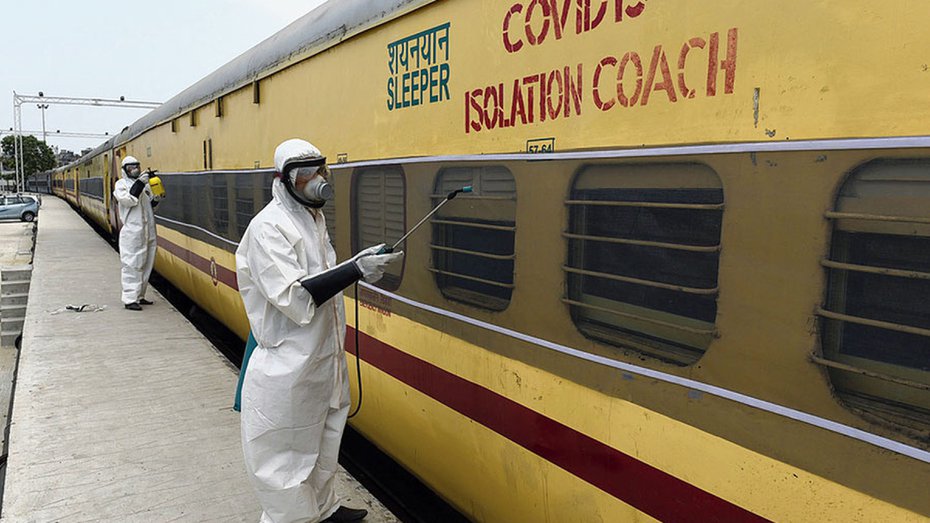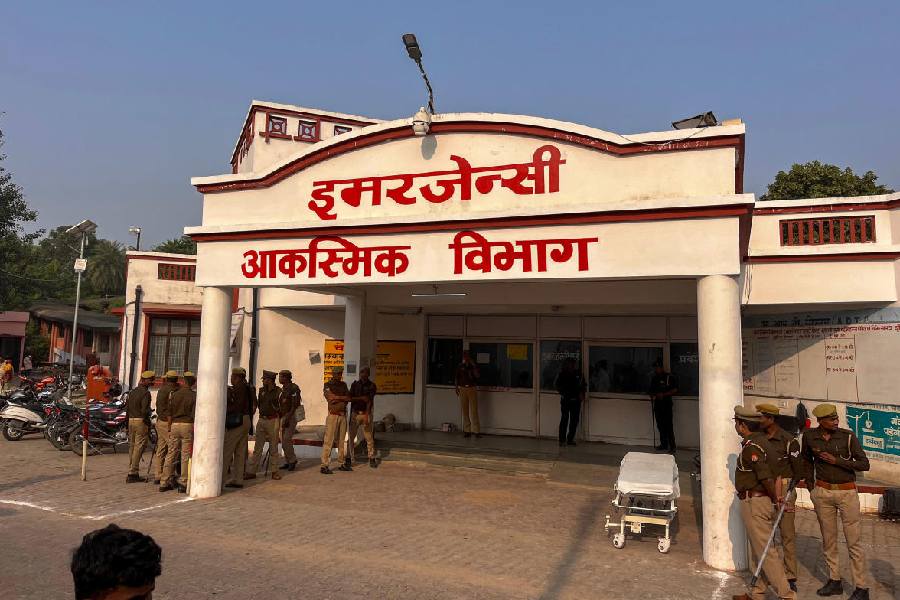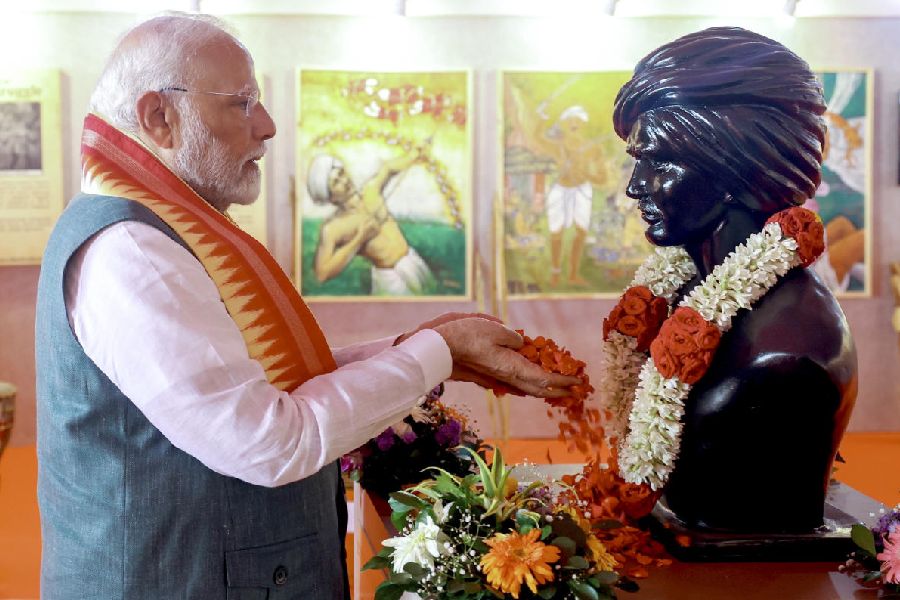Equipped with handheld showers, mosquito nets, bio-toilets, power sockets, oxygen cylinders and more, the Railways' COVID-care coaches have it all to keep patients comfortable but only if they can withstand the summer heat trapped inside the metal boxes'.
In an effort to augment the government's efforts to build infrastructure to deal with the spread of COVID-19, the Railways has converted 5,321 non-AC sleeper class ICF (older design) coaches and developed them into COVID Care Level 1 centres for patients with mild symptoms or those suspected to have the infection.
Suspected and confirmed cases will be kept in separate coaches, officials said, adding that 960 coaches in five states have already been deployed. These include 503 coaches in Delhi and 372 in Uttar Pradesh.
The coaches are ready to move in' but there are no takers yet. Two or more air-conditioned coaches will also be provided for the medical staff to rest in.
June is a hot month, the hottest in many parts of the country, and the biggest challenge is how to make sure the patients are comfortable. Officials are hoping the monsoon sets in to bring some relief from the infamous Indian summer and some said in hushed tones that the coaches might well be useless otherwise.
Using non-air conditioned coaches was mandated by the Health Ministry, they said, adding that temperatures inside the coaches could reach 43 degrees Celsius, making it unbearable inside.
The Railways is now experimenting with a variety of options to bring down the temperature inside the coaches. These include bamboo blinds on windows and bubble-wrap on the roof as well as heat-resistant coating and portable coolers.
It has also used cover-sheets over the coaches to keep the heat out and the interiors cool.
These measures will, however, bring the inside temperature down by up 1 degree Celsius only, an official said.
The Northern Railways has also coated the roof of isolation coaches with heat-reflective paint as a trial and found that the temperature inside can be reduced up to 2.2 degrees Celsius using this method.
Trials are being planned for another coating developed in association with IIT-Bombay.
A trial has been carried out by placing portable coolers inside the coaches as well, the Railways said, adding that temperature reduction of up to 3 degrees Celsius was achieved using them.
While efforts are underway to cool things down, officials said they are praying for rain.
Giving details of the measures taken to adapt the coaches for COVID patients, they said the middle berths have been removed. Each sleeper coach is divided into eight bays or cabins with each having the capacity for 16 beds. Each coach will have three toilets - one western and two Indian style and one bathroom, complete with handshowers, bucket, mug and bathroom stool.
The Railways is working to neutralise the risk of infection being spread, officials said. Chlorine tablets have been placed in the chambers of the bio-toilets, which also have bio-enzymes in their tanks to take care of human waste.
The Railways has got clearance from the Environment Ministry for a one-time exemption for disposal of biodegradable material generated during patient stay.
Space has been created in the coaches to hold IV fluid bottles, extra bottle holders and clamps have been provided to hang them. Two oxygen cylinders with clamping arrangement have also been provided.
For segregation of medical waste, there are three different colour-coded dustbins. Mosquito nets have been installed on windows.
Bright LED lights and low noise fans have been installed with 18 mobile charging points per coach.
Railways will maintain the coaches, provide linen and maybe food as well, depending on feasibility, if requested by states. It will also provide security and wifi connection.
According to guidelines from the Health Ministry, coaches will be decontaminated daily with disinfectant -- freshly prepared with 1 per cent hypochlorite -- and detergent solution. Surface mopping of floors and cleaning of bathrooms, underside of beds and other related items placed in the coaches will be carried out scrupulously, officials said.











